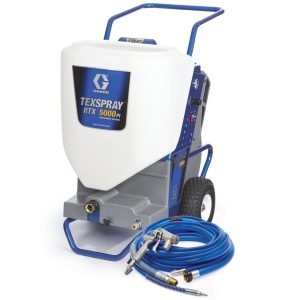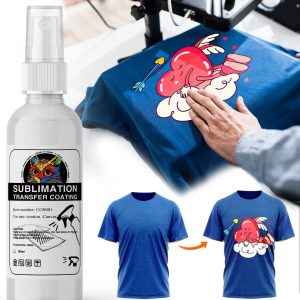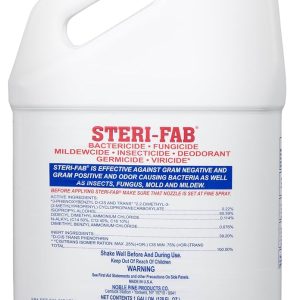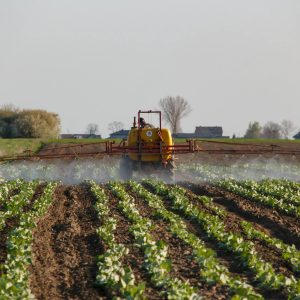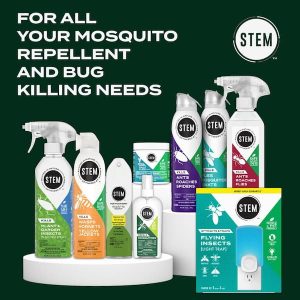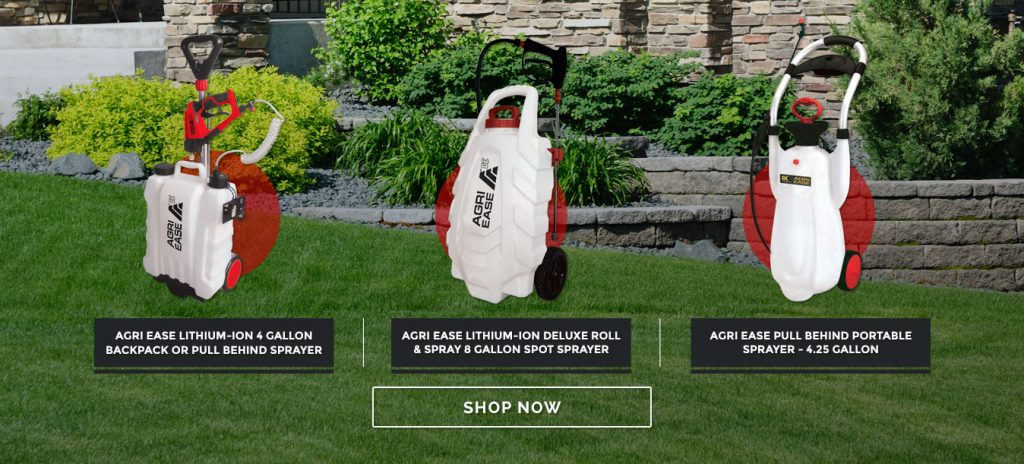
What Is a Power Sprayer and Why Do You Need One?
A power sprayer is a mechanized device designed to apply liquids such as pesticides, herbicides, fertilizers, or paint with precision and efficiency. Unlike manual spraying methods that require significant physical effort and time, power sprayers are devices used in agriculture to spray liquids like water, insecticides, and pesticides. These versatile tools have revolutionized both agricultural practices and home maintenance tasks by providing consistent pressure, uniform coverage, and reduced labor requirements.
The importance of selecting the right power sprayer cannot be overstated. Whether you’re a professional farmer managing hundreds of acres or a homeowner looking to maintain your garden and property, the correct sprayer can dramatically improve your efficiency while reducing chemical waste and application costs. Modern power sprayer technology has evolved significantly, incorporating advanced features like pressure regulation, variable flow rates, and battery-powered operation that make them more user-friendly and environmentally conscious than ever before.
Understanding the fundamental mechanics of how a power sprayer operates helps in making informed purchasing decisions. These devices utilize either electric motors, battery power, or engine-driven pumps to create pressure that forces liquid through specialized nozzles, creating an even spray pattern. The pressure system allows for better penetration of chemicals into crop canopies or surfaces, ensuring maximum effectiveness of applied materials.
Essential Types of Power Sprayer Systems Available Today
Battery-Powered Power Sprayer Units
Battery-powered power sprayer models have gained tremendous popularity due to their convenience and environmental benefits. Most models of the battery-operated sprayer have the pump control feature which takes care of the pump output speed as per the spraying needs while reducing the manpower earlier required. These units typically feature rechargeable lithium-ion batteries that provide several hours of continuous operation, making them ideal for medium-sized applications.
The advantages of battery-powered power sprayer systems extend beyond mere convenience. They produce zero emissions during operation, operate quietly compared to gas-powered alternatives, and require minimal maintenance. Most quality battery power sprayer units offer variable pressure settings, allowing users to adjust spray intensity based on the specific application requirements. Popular capacities range from 2-gallon backpack models perfect for residential use to larger 4-gallon units suitable for commercial landscaping operations.
When selecting a battery-powered power sprayer, consider factors such as battery life, charging time, and the availability of replacement batteries. High-quality models often include features like low-battery indicators, overload protection, and quick-disconnect fittings for easy maintenance. The initial investment in a battery power sprayer may be higher than manual alternatives, but the long-term savings in labor costs and improved application efficiency make them worthwhile investments.
Electric Power Sprayer Models
Electric power sprayer systems offer consistent performance and unlimited run time when connected to power sources. Electric sprayers have fewer moving parts and often have simpler plumbing, which means less can go wrong, fewer parts to maintain in inventory, and easier maintenance. These units are particularly valuable for greenhouse operations, indoor applications, or locations with reliable electrical access.
The primary benefits of electric power sprayer technology include consistent pressure output, lower operating costs compared to fuel-powered alternatives, and reduced environmental impact. Electric models typically feature more precise pressure control systems, allowing for exact application rates essential in specialized agricultural or industrial applications. Many electric power sprayer units also incorporate automatic shut-off systems that activate when the trigger is released, preventing waste and ensuring operator safety.
Professional-grade electric power sprayer systems often include advanced features such as pressure gauges, flow meters, and programmable control systems. These features enable precise chemical application rates, which is crucial for both effectiveness and regulatory compliance in commercial applications. The reliability of electric motors also means less downtime for maintenance compared to internal combustion engine alternatives.
Agricultural Power Sprayer Equipment
Agricultural power sprayer systems represent the heavy-duty segment of the market, designed for large-scale farming operations. Power sprayers are critical for effective pest and disease management in modern farming, making them indispensable tools for commercial agriculture. These systems typically feature larger tank capacities, higher pressure capabilities, and specialized boom systems for wide-area coverage.
Tractor-mounted power sprayer systems offer the ultimate in efficiency for large farming operations. A tractor sprayer covers large farming areas in a short time, ensuring every inch of the field is treated while reducing labor costs. These systems can cover hundreds of acres per day, making them essential for time-sensitive applications like pest control or nutrient management during critical growth periods.
Modern agricultural power sprayer equipment incorporates sophisticated technologies such as GPS guidance, variable rate application, and real-time monitoring systems. These features enable precision agriculture practices that optimize chemical usage, reduce environmental impact, and improve crop yields. Advanced models include features like automatic boom height control, drift reduction technology, and integrated weather monitoring systems.
Key Features to Consider When Choosing Your Power Sprayer
Pressure Control and Regulation Systems
Effective pressure control is fundamental to successful power sprayer operation. Quality units feature adjustable pressure settings that allow operators to customize spray characteristics for different applications. Low-pressure settings are ideal for delicate plants or precision applications, while higher pressures provide better penetration for dense vegetation or stubborn pests.
Professional power sprayer models include pressure gauges and regulation systems that maintain consistent output regardless of tank level or liquid viscosity. This consistency is crucial for achieving uniform coverage and ensuring proper chemical efficacy. Look for models with pressure relief valves that prevent over-pressurization and protect both the equipment and operator from potential hazards.
Advanced power sprayer systems may include electronic pressure control with digital displays, allowing precise setting adjustments and real-time monitoring. These features are particularly valuable in commercial applications where documentation of application parameters is required for regulatory compliance or quality assurance programs.
Tank Capacity and Material Construction
Power sprayer tank capacity directly impacts operational efficiency and application range. Smaller 1-2 gallon tanks are perfect for homeowner applications and small gardens, while commercial operations may require 15-gallon or larger capacities. Consider your typical application area and chemical mixing requirements when selecting tank size, as larger tanks reduce refill frequency but increase overall system weight.
Tank material construction significantly affects power sprayer durability and chemical compatibility. High-density polyethylene (HDPE) tanks offer excellent chemical resistance and UV stability, making them suitable for outdoor storage and harsh chemical applications. Some premium models feature graduated tank markings for accurate mixing ratios and translucent materials for easy liquid level monitoring.
Quality power sprayer tanks include features such as wide-mouth openings for easy cleaning, drain plugs for complete emptying, and chemical-resistant seals. Professional models may include tank agitation systems that keep chemicals properly mixed during application, ensuring consistent concentration throughout the spraying process.
Nozzle Systems and Spray Pattern Options
Nozzle selection dramatically impacts power-sprayer performance and application quality. Different nozzle types produce varying spray patterns, droplet sizes, and coverage characteristics. Flat-fan nozzles provide excellent coverage for broadcast applications, while cone nozzles offer better penetration for dense vegetation or targeted pest control.
Adjustable nozzle systems allow operators to modify spray patterns without changing physical components. Many modern power sprayer units include quick-change nozzle systems with color-coded components for easy identification and rapid field changes. This flexibility is particularly valuable in diverse application scenarios where different chemicals or coverage requirements demand specific spray characteristics.
Professional power sprayer systems may include anti-drift nozzles that produce larger droplets to reduce chemical drift, or low-pressure nozzles designed for sensitive applications. Some advanced models feature electronic nozzle control systems that automatically adjust spray characteristics based on travel speed or application requirements.
Power Sprayer Applications Across Different Industries
Agricultural Power Sprayer Uses
In agricultural settings, power sprayer equipment serves multiple critical functions throughout the growing season. Primary applications include pest control, where precise chemical application timing can mean the difference between crop success and failure. Modern power sprayer systems enable farmers to apply insecticides, fungicides, and herbicides with accuracy that maximizes effectiveness while minimizing environmental impact.
Nutrient management represents another crucial agricultural application for power sprayer technology. Liquid fertilizers applied through sprayers provide rapid nutrient availability and can be precisely targeted to specific growth stages or field conditions. Foliar feeding applications require the fine, uniform spray patterns that quality power sprayer equipment provides, ensuring efficient nutrient uptake and minimal waste.
Disease prevention and management in crops increasingly relies on preventive power sprayer applications. Regular fungicide applications during vulnerable growth periods can prevent costly crop losses, but success depends on proper timing, coverage, and application rates that professional power sprayer systems deliver reliably.
Residential and Commercial Power Sprayer Applications
Homeowners find power sprayer technology invaluable for maintaining healthy landscapes and gardens. Lawn care applications include fertilizer application, weed control, and pest management tasks that would be time-consuming and physically demanding with manual methods. A quality residential power sprayer can transform weekend garden maintenance from tedious chores into efficient, professional-quality applications.
For homeowners interested in comprehensive lawn care, consider reading our rejuvia sleep spray reviews to understand how proper application techniques translate across different spraying needs.
Commercial landscaping operations rely heavily on power sprayer equipment for efficient property maintenance. These applications range from routine fertilization and pest control to specialized treatments for ornamental plants and turf management. Professional landscapers often utilize multiple power sprayer configurations to handle diverse client needs efficiently.
Property maintenance applications extend beyond traditional landscaping to include cleaning applications, where power sprayer technology provides effective surface preparation and maintenance solutions. Pressure washing decks, driveways, and building exteriors requires specialized power sprayer equipment designed for high-pressure water applications.
Power Sprayer Performance Benefits and Efficiency Gains
Labor Cost Reduction and Time Savings
The economic benefits of quality power sprayer equipment become apparent quickly in both commercial and residential applications. Manual spraying is labor-intensive and time-consuming, but with a tractor sprayer pump, farmers can cut costs and save time. Professional operations often see labor cost reductions of 50-75% when transitioning from manual to mechanized spraying methods.
Time efficiency improvements with power sprayer technology extend beyond simple speed increases. Consistent application rates and uniform coverage reduce the need for repeat applications, while precision control systems minimize chemical waste and associated costs. These efficiency gains compound over time, making power sprayer investment highly cost-effective for regular users.
The ergonomic benefits of power sprayer equipment cannot be overlooked when considering long-term operational costs. Reduced physical strain on operators leads to less fatigue, fewer injury claims, and improved job satisfaction. Battery-powered power sprayer models eliminate the physical pumping action required by manual sprayers, making applications accessible to operators of varying physical capabilities.
Chemical Application Precision and Environmental Benefits
Modern power sprayer systems provide unprecedented precision in chemical applications, leading to significant environmental benefits. The optimization of spray application reduces chemical wastage and allows accurate application control. This precision reduces chemical costs while minimizing environmental impact through reduced overspray and drift.
Variable rate application technology in advanced power sprayer systems enables site-specific chemical management. GPS-guided systems can automatically adjust application rates based on field conditions, soil types, or crop requirements, optimizing chemical usage and maximizing effectiveness. This precision agriculture approach represents the future of sustainable farming practices.
Environmental stewardship increasingly demands responsible chemical application practices that quality power sprayer equipment facilitates. Features like drift reduction nozzles, buffer zone management, and application record-keeping capabilities help operators comply with environmental regulations while maintaining effective pest and disease control programs.
Maintenance and Care for Your Power Sprayer Investment
Routine Power Sprayer Maintenance Procedures
Proper maintenance is essential for maximizing power sprayer performance and equipment lifespan. Electric sprayers have fewer moving parts and often have simpler plumbing, which means less can go wrong and easier maintenance. Regular cleaning after each use prevents chemical buildup that can damage seals, nozzles, and internal components.
Daily maintenance routines should include thorough tank rinsing, nozzle cleaning, and inspection of hoses and connections for wear or damage. Weekly maintenance involves checking pump operation, testing pressure systems, and inspecting battery condition on electric models. These simple procedures prevent most common power sprayer problems and ensure reliable operation when needed.
Seasonal maintenance requirements vary by power sprayer type and usage intensity. Battery-powered models require battery conditioning and storage procedures, while electric units need motor inspection and electrical connection maintenance. Proper winterization prevents freeze damage in cold climates and ensures spring startup reliability.
Troubleshooting Common Power Sprayer Issues
Understanding common power sprayer problems and solutions helps operators maintain productive operations and avoid costly repairs. Pressure loss typically indicates worn seals, clogged nozzles, or pump wear. Regular inspection and replacement of wear components prevents most pressure-related issues.
Uneven spray patterns usually result from nozzle wear, pressure inconsistencies, or tank agitation problems. Quality power sprayer systems include diagnostic features that help identify problem sources quickly. Keeping spare nozzles and common wear parts on hand minimizes downtime during critical application windows.
Battery-related issues in electric power sprayer models often relate to improper charging or storage practices. Following manufacturer recommendations for battery care extends service life and maintains consistent performance. Most quality units include battery condition indicators that help operators anticipate replacement needs.
Power Sprayer Buying Guide: Making the Right Choice
Budget Considerations for Power Sprayer Purchase
Power sprayer pricing varies significantly based on capacity, features, and intended applications. Entry-level residential models suitable for small gardens start around $100-200, while professional agricultural systems can exceed $10,000. Understanding your specific needs helps identify the appropriate price range and avoid over-investing in unnecessary features.
Consider total cost of ownership when evaluating power sprayer options. Higher initial investment in quality equipment often results in lower maintenance costs, longer service life, and better performance. Factor in costs for replacement parts, batteries, and routine maintenance when comparing different models and brands.
Financing options are available for commercial power sprayer purchases, making professional equipment accessible to smaller operations. Leasing programs allow operators to access current technology without large capital investments, while rental options provide flexibility for seasonal or occasional users.
Power Sprayer Brand Comparison and Features
Leading power sprayer manufacturers offer different strengths and specializations. Research brand reputation, parts availability, and dealer support networks in your area before making purchase decisions. Established brands typically offer better parts support and warranty coverage, important considerations for commercial applications.
Feature comparison should focus on capabilities that match your specific applications. Advanced features like GPS guidance and variable rate control provide value in large-scale operations but may be unnecessary for residential use. Focus on reliability, ease of maintenance, and operator comfort for maximum satisfaction with your power sprayer investment.
Warranty coverage varies significantly among power sprayer manufacturers and models. Comprehensive warranties covering both parts and labor provide peace of mind for expensive equipment investments. Extended warranty options may be available for commercial applications where equipment downtime is particularly costly.
Safety Considerations When Operating Your Power Sprayer
Personal Protective Equipment Requirements
Safe power sprayer operation requires appropriate personal protective equipment (PPE) suited to the chemicals and conditions involved. Chemical-resistant gloves, eye protection, and respiratory protection are minimum requirements for most applications. The specific PPE requirements depend on the chemicals being applied and should follow label recommendations.
Protective clothing selection should consider both chemical exposure risks and weather conditions. Lightweight, chemical-resistant suits provide protection without causing overheating during extended applications. Quality boots with chemical-resistant soles protect feet from spills and provide secure footing during power sprayer operation.
Respiratory protection becomes critical when applying volatile chemicals or working in enclosed spaces. Half-face or full-face respirators with appropriate cartridges provide protection from chemical vapors and particles. Regular training on proper PPE use ensures operator safety and regulatory compliance.
Power Sprayer Operational Safety Protocols
Safe power sprayer operation begins with thorough equipment inspection before each use. Check all connections, pressure systems, and safety devices to ensure proper function. Verify that emergency shut-off systems work correctly and that all operators understand emergency procedures.
Weather conditions significantly impact power sprayer safety and effectiveness. Wind speed and direction affect spray drift and operator exposure, while temperature and humidity influence chemical behavior and application timing. Follow label restrictions and local regulations regarding weather conditions during chemical applications.
Training programs for power sprayer operators should cover equipment operation, safety procedures, and emergency response. Regular refresher training keeps safety practices current and addresses new equipment or chemicals being used. Document training completion for regulatory compliance and insurance purposes.
Frequently Asked Questions About Power Sprayer Equipment
What is the difference between a power sprayer and a regular garden sprayer?
A power sprayer uses mechanical pressure generation through pumps, motors, or compressed systems, while regular garden sprayers rely on manual pumping action. Power sprayer units provide consistent pressure, larger capacity, and reduced operator fatigue compared to manual alternatives.
How do I choose the right power sprayer for my farm?
Consider your acreage, typical applications, chemical types, and budget when selecting an agricultural power sprayer. Large operations benefit from tractor-mounted systems, while smaller farms may find backpack or ATV-mounted units more appropriate. Consult with local dealers about specific crop and chemical requirements.
Can I use any chemicals in my power sprayer?
Power sprayer chemical compatibility depends on tank materials, seals, and component construction. Always check manufacturer recommendations and chemical labels for compatibility information. Some chemicals require specific tank materials or component specifications for safe use.
How often should I service my power sprayer equipment?
Power sprayer service intervals depend on usage intensity and operating conditions. Seasonal maintenance is minimum for most units, while high-use commercial equipment may require monthly or even weekly service. Follow manufacturer recommendations and adjust based on your specific applications.
What pressure settings should I use for different applications?
Power sprayer pressure requirements vary by chemical type, nozzle selection, and target coverage. Herbicides typically require 20-30 PSI, while insecticides may need 40-60 PSI for proper penetration. Always follow chemical label recommendations for pressure and nozzle specifications.
Are battery-powered power sprayer models reliable for commercial use?
Modern battery-powered power sprayer technology provides excellent reliability for many commercial applications. Consider battery life, charging infrastructure, and backup power options when evaluating battery models for commercial use. Quality brands offer extended battery programs for continuous operation.
How do I prevent clogging in my power sprayer system?
Prevent power sprayer clogging through proper filtration, regular cleaning, and appropriate chemical mixing procedures. Use recommended screen filters, strain chemicals before adding to tanks, and flush systems thoroughly after each use. Keep spare nozzles and filters available for quick replacement.
What warranty coverage should I expect from power sprayer manufacturers?
Power-sprayer warranty coverage varies by manufacturer and model, typically ranging from 1-3 years for residential units and extended coverage for commercial equipment. Look for warranties covering both parts and labor, with reasonable terms for wear components like seals and nozzles.
For more detailed information about power sprayer specifications and applications, visit the comprehensive resource at Tomahawk Power’s sprayer guide.
Ready to invest in a quality power sprayer for your operation? Contact local agricultural equipment dealers for hands-on demonstrations and professional recommendations tailored to your specific needs and applications.
